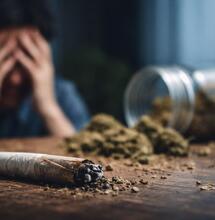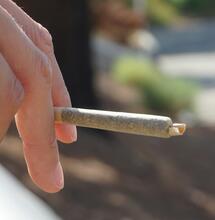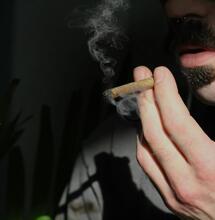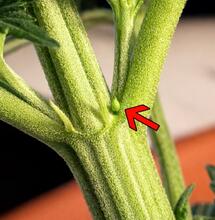Occasional Smoker or Addict? Where is the Line?
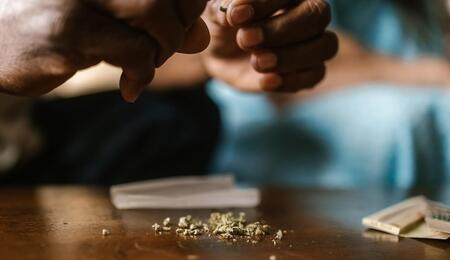
Millions of people enjoy the recreational and therapeutic benefits of marijuana. But when does marijuana use become abuse? According to research, up to 30 percent of those who consume marijuana flower or other products might have some form of "marijuana use disorder." The biggest concern is young people who smoke before age 18; they are five times more likely to abuse weed than adults.
Addiction is more common with alcohol or drugs such as cocaine and methamphetamine. However, it's possible to get hooked on cannabis to a point where you don't handle normal activities throughout the day.
Marijuana dependence happens when you build up a tolerance to it and always need more and more to experience the same effect.
When a substance enters the brain, it overrides the normal functions of the brain, boosting specific functions beyond or below expected levels. The brain adapts with continued exposure, in this case THC, in an attempt to "protect" itself. Which would explain why when a person smokes more and more, the effect may not be as strong as before. You must use a more significant amount to feel the same kind of high when you started.
Some valid questions to ask yourself if you think you have some form of cannabis use disorder.
- Do you use cannabis every day or almost every day?
- Do you smoke multiple times a day?
- Is it the first thing you think of when you wake up?
- Do you find it difficult to go for a few days without smoking?
- Do you get anxiety, crankiness, and insomnia when you try to quit?
- Are those effects going away when you use cannabis again?
- Do you have strong cravings for marijuana?
- Do you always reach for cannabis when you find yourself in a difficult situation at work or with family?
- Do you always look for more potent products with higher or extreme amounts of THC?
Answering yes on any of these questions might indicate some level of cannabis use disorder.
You may have a cannabis dependence when:
- One is never enough. You always need more.
- Keep on grinding larger and larger amounts of flower because you build tolerance.
- You consistently wish to cut down, but you can't.
- You become angry when you spend a couple of days with an empty stash.
- All of it interferes with going to school, studying, or working.
- You stop doing things that were once important to you.
- Your room is a mess because you don't care to clean.
- You always prioritize the blunt, sometimes at the cost of a friendship.
- Withdrawal symptoms are awful when you finally stop.
Withdrawal symptoms
Symptoms of cannabis withdrawal include:
- Sleeplessness and restlessness at night
- Changes in appetite such as no interest to eat
- Mood problems
- Cravings that are tough to control
- Headaches
- Poor focus
- Melancholia
- Feeling depressed
What Helps?
If you feel that your relationship with Cannabis is doing more damage than good, then it's time to limit the use or entirely stop for a while.
You could try and set limits, such as using cannabis only on certain days of the week, like Friday or Saturday. Never before 8 p.m. Never before all tasks for the day have been completed. Never go over budget for buying. Have a plan and stick to the plan.
With a full break up, withdrawal symptoms may be more unpleasant, but it's worth remembering that those are transient sensations and will pass in a matter of weeks.
Binge-watching a series or reading a novel can deter bad thoughts as you go through the withdrawal period. Talking to a friend or professional therapist can also help, especially if it all feels too tough. Deep, engaging conversations on the topic can help change patterns of behavior.





